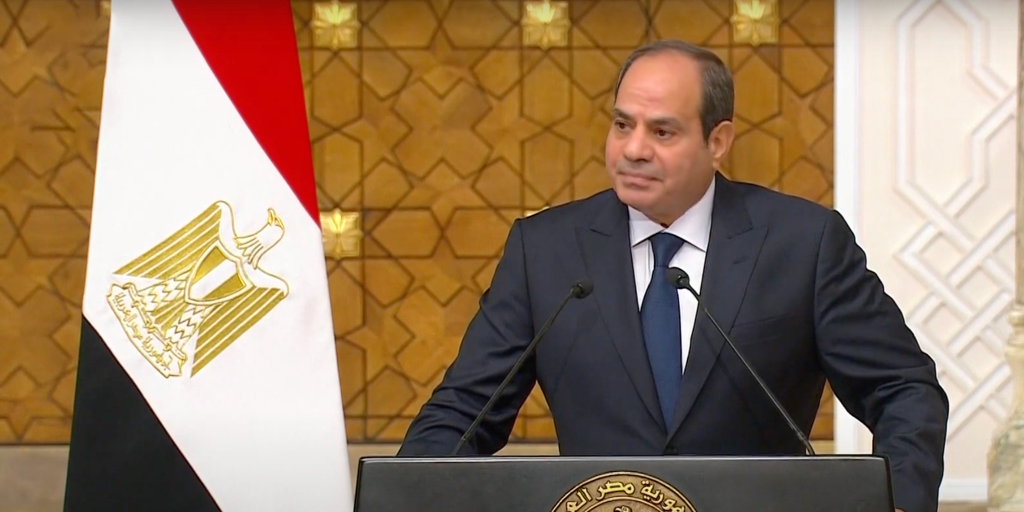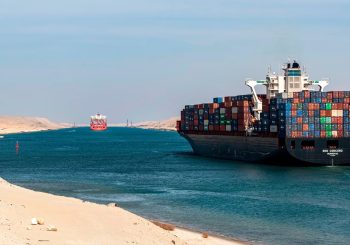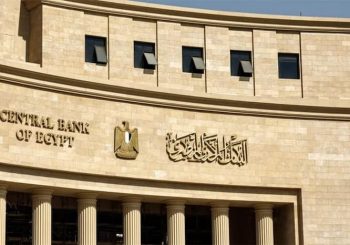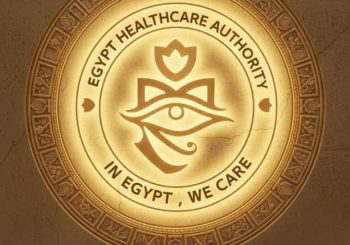President Abdel Fattah Al-Sisi met with German President Frank-Walter Steinmeier in Egypt on Wednesday, 11 September, to discuss the Nile water issue, including the Grand Ethiopian Renaissance Dam (GERD), negotiations with Ethiopia, and efforts to secure a binding legal agreement on the dam’s operation and filling.
During a joint press conference with his German counterpart at Al-Ittihadiya Palace, President Al-Sisi highlighted the Nile water issue as a top priority, mentioning GERD and the ongoing negotiations with Ethiopia to secure a binding legal agreement on the dam’s filling and operation.
He noted that Egypt has been working for over a decade to reach an agreement based on international standards for transboundary rivers, emphasizing that Egypt relies solely on the Nile River, which has provided uninterrupted water for thousands of years.
The statements follow Ethiopia’s demand that Egypt “must abandon its aggressive approach” regarding the contentious hydroelectric dam on the Nile River, amid rising tensions between the two nations.
This response came after Egypt sent a letter to the UN Security Council, expressing Egypt’s firm rejection of Ethiopia’s unilateral policies, which violate international law.
History of the dispute
In 2010, Ethiopia announced plans to construct a multi-billion-dollar dam on the Blue Nile River, known as the Grand Ethiopian Renaissance Dam (GERD).
Subsequently, Nile Basin states signed the Nile Basin Cooperative Framework Agreement, also known as the Entebbe Agreement, but Egypt and Sudan did not join, arguing that the agreement fails to safeguard their historical water rights.
The Entebbe Agreement was intended to replace the 1929 and 1959 Nile Water agreements, which allocated 55.5 billion cubic meters of water to Egypt and 18.5 billion to Sudan, and granted them veto power over upstream projects.
Although Egypt raised concerns with the United Nations and the African Union in the same year, political unrest and upheaval during the Arab Spring in 2011 stalled diplomatic negotiations.
Between 2011 and 2014, several committees were formed to assess the impact of the dam on Egypt. By 2014, Ethiopia reported that 32 percent of GERD was completed.
In 2015, Egypt, Ethiopia, and Sudan signed the Declaration of Principles in Khartoum, which outlined key provisions: the GERD should not cause significant harm to any of the three countries, it should foster economic development and cross-border cooperation, and operational agreements must be established before filling the reservoir.
By 2016, Ethiopia announced that 60 percent of the dam’s construction was completed. In 2017, negotiations between Egypt, Sudan, and Ethiopia failed to produce an agreement.
In 2018, a nine-party meeting involving the irrigation and foreign ministers and intelligence chiefs of the three countries was held, but it ended without reaching an agreement.
In 2019, Egypt requested a new round of negotiations in Cairo to address the filling of the GERD reservoir and its operational rules after months of stalled discussions. These negotiations broke down when Ethiopia rejected Egypt’s proposal on dam filling, citing concerns over sovereignty.
In 2020, Ethiopia announced plans to unilaterally begin filling the dam in July, with or without an agreement. Egypt sought intervention from the UN Security Council, labeling the situation as “an imminent threat to international peace and security.”
Following mediation by South African President Cyril Ramaphosa, chair of the African Union (AU), the leaders of Egypt, Ethiopia, and Sudan agreed to resume talks. Egypt insisted on clear policies for reservoir filling during prolonged droughts.
However, mediation efforts did not yield an agreement, and in 2021, Ethiopia commenced a second filling of the dam without a consensus with Egypt and Sudan.
In July of this year, Ethiopia announced plans to proceed with the fifth filling of the GERD reservoir, despite ongoing negotiations with downstream countries that have yet to resolve operational protocols.







Comments (0)